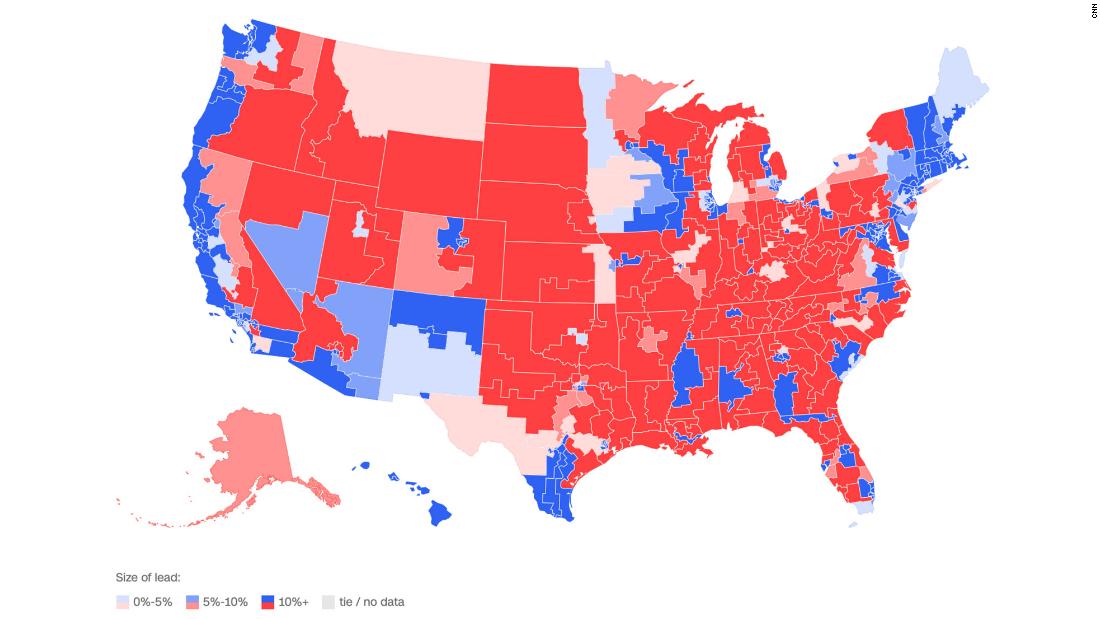[ad_1]
Although the 2020 election is still more than 14 months away, there are already four times as many Republicans leaving the House as there are Democrats. As interesting, only two of the 12 Republicans who have announced they are either retiring at the end of their terms or, in Duffy’s case, resigning before their terms end, are leaving to run for higher office. The other 10 are simply walking away from politics entirely — at least for the next two years.
Duffy, in announcing his decision via Facebook, cited personal reasons for why he is leaving Congress now.
Which makes all the sense in the world.
But it’s also worth noting that Duffy, who is in his fourth term representing the sprawling northern Wisconsin 7th district, had been regarded since his election in 2010 as a rising star within the party who had managed to build close relationships with both former House Speaker Paul Ryan and tne President. He has been courted as a potential Senate candidate in 2018 (he declined to run) and was seen as a potential Senate candidate if Sen. Ron Johnson retires in 2022. (While a 2022 statewide race could be on the table for Duffy, it’s hard to argue he’s better off stepping away from politics for several years prior to such a bid.)
Duffy’s decision also doesn’t come in a vacuum.
It’s easy — but overly facile — to lump all of the Republican retirement decisions into a single explanation. Like the rest of us, members of Congress make decisions about their futures for all sorts of reasons — and very rarely for one reason alone. But when you look across the landscape of the GOP retirements to date, a few obvious observations can be made about what it’s like being a House Republican in Donald Trump’s Washington — and why there has been this spate of retirements.
1) Being in the House minority sucks
Take Duffy. He was elected in the 2010 election, part of the class that helped Republicans take back the House majority. He spent his first six years in office not just as a member of the majority party in the House but also someone who had the ear of the speaker. The 2018 election handed power back to Democrats and Ryan retired. Which is a pretty big blow for someone like Duffy.
Ask any member of Congress who has spent time in the House majority and the minority the difference between the two and they will tell you is is the size of the Grand Canyon. As a member of the House minority, you are almost totally powerless to proactively move any sort of legislation; your wins, such as they are, are focused on gumming up the procedural working of the House — moves that the average American has zero idea you are even doing.
There’s a reason that following the Republican takeover of the House in 1994 and the Democratic takeover of the House in 2006, two dozen members of the newly minted minority party retired in each of the following elections.
2) Trump’s hostile takeover of the GOP matters
Then along came Trump, casting Mexico as sending rapists and criminals to the United States and pledging to build a wall along the southern border. That take on what it meant (and means) to be a Republican ran directly counter to Hurd’s vision. And as Trump has made clear on many occasions, he doesn’t like when GOP elected officials disagree with his vision for the party — and he is willing to punish those who step out of line.
Given those options, retirement starts to look a lot more appealing to someone like Hurd.
3) Electoral (and demographic) reality sinks in
If you are Woodall or Olson, what sounds better: Retiring after a few terms or losing a hugely expensive, negative and time-consuming re-election race? Right.
Again, no two House retirements are exactly the same — and all of them are influenced by personal factors. But when this many House Republicans in these districts announce this early that they aren’t running again (and they aren’t running for any higher office) it’s a telling indicator of the fact that all is not well for congressional GOPers.
[ad_2]
Source link

